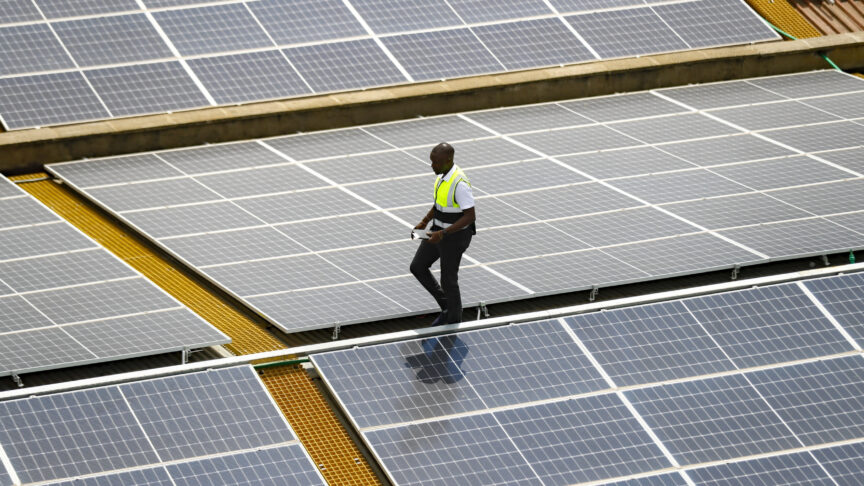Khartoum’s autocratic enabler: Russia in Sudan
Western leaders can prevent Sudan’s military from drifting further into dependence on the Kremlin. To achieve this, they will need to take a more assertive approach to supporting the country’s protest movement and dealing with its military
Sudan has averted the immediate threat of a full military coup. But, while the country’s generals have now agreed to reinstate Abdalla Hamdok as prime minister, the future of the civilian component of the transitional government that he used to lead remains open. The rest of the civilian leadership has not been reinstated. If Sudan’s transition is to continue on a democratic trajectory, its protest movement will need to convince the military that a return to autocracy would come at too high a cost. The protesters cannot do this alone: they need international support in the form of effective deterrence against the small but influential group of states that encourage the military to sideline the civilian leadership.
Most members of the international community support a democratic transition in Sudan, but a few have broken with the consensus. Russia has emerged as one of the Sudanese military’s boldest enablers. The Kremlin’s immediate reaction to the power grab was to claim that it was not a coup and that condemnation of the military was merely external interference – and to imply that democratic reforms had exacerbated Sudan’s economic crisis. This stance carried over to the United Nations Security Council, at which Russia vetoed a draft resolution condemning the coup. Anecdotal evidence suggests that Russia-linked actors posing as grassroots activists mounted a media campaign to weaken the protest movement, and provided strategic communications advice to the second pillar of the military – the Rapid Support Forces (RSF), a powerful paramilitary organisation that has begun to stoke Europeans’ fears about migration.
Authoritarian partnership
Russia’s relationship with Sudan, traditionally limited to arms exports, reached a new level of cooperation in 2017. Then-president Omar al-Bashir sought out Russia for lack of alternatives. Internationally isolated and saddled with sanctions, Sudan had few offers of partnership other than that from Russia. The Kremlin appeared to believe that the Trump administration’s disinterest in the Horn of Africa – in parallel with a race to establish naval bases conducted by rival powers on the Bab al-Mandab (Qatar and Turkey on one side, and the United Arab Emirates, Egypt, and Saudi Arabia on the other) – created an opportunity to expand Russian influence in the region. (The Biden administration has since appointed a special envoy for the Horn of Africa.)
The turning point in the relationship came in November 2017, when Bashir visited Sochi. There, Bashir framed Sudan’s role in grandiose terms, suggesting that it would be Russia’s “key to Africa”. The sides announced plans to establish a Russian naval base in Port Sudan and struck several other security and economic agreements, including those on mining concessions. These deals involved companies linked to US-sanctioned oligarch Yevgeny Prigozhin, including M Invest and its Sudanese division, Meroe Gold. Under the agreements, the firms would enter sectors of the Sudanese economy controlled by business entities linked to the military and the RSF. Personnel from the Wagner Group, a private military company linked to Prigozhin, began to arrive in Sudan shortly thereafter. They initially deployed to mining exploration sites, before providing a range of political and military assistance to the regime.
By January 2019, the Russian Ministry of Foreign Affairs confirmed that Russian contractors were training the Sudanese military and police forces in response to anti-government protests. By that time, more than 500 of these mercenaries reportedly operated in Khartoum, Port Sudan, and South Darfur. In 2018 and 2019, the Wagner Group’s activities gradually extended to training the National Intelligence and Security Services, designing disinformation campaigns to discredit the anti-government protesters, and reportedly taking part in the repression of large-scale demonstrations.
The full meaning of Bashir’s “key to Africa” pledge revealed itself in the expansion of Russian activity in the years that followed the 2017 opening in Sochi. The Wagner Group’s presence in the Central African Republic was supported by its role in Sudan, in a dynamic that saw the company’s resources transferred between the two countries. Through a mixture of opportunistic expansion driven by the Wagner Group’s entrepreneurial ethos and Moscow’s strategic interest in expanding its Africa footprint, the company now forms a triangle of Russian influence linking Sudan, the Central African Republic, and Libya.
New reality
After Bashir was deposed in 2019, Russia maintained its role in Sudan but stayed out of the public eye, adjusting to the new reality of a transitional government with shared civilian-military leadership. Russian mining companies and the Wagner Group largely ignored the civilian half of the government. They realised that it was fully in the Western camp – as it had turned to the United States and Europe for capacity support and aligned with the West’s political objectives in Sudan. The Wagner Group relied on its links to the RSF for political cover, branching out into running disinformation campaigns for the organisation.
The end of civilian rule in Sudan would lead to an increase in destabilising Russian influence in the country. Maintaining a strong civilian component of the transitional government is the best defence against the spread of such influence.
The Russian state also had to rethink its designs on a naval base in Port Sudan: with the civilians now sharing power, accountability and oversight entered the equation. The Kremlin’s elite bargain with Bashir could fall apart if civilian leaders decided that leasing maritime real estate to a foreign power undermined Sudan’s sovereignty. Indeed, the transitional government announced in June 2021 that it would review the military agreement with Russia, including the naval base.
The Russian state likely calculates that it is easier to do business with a diplomatically isolated military government, and that it can use its veto at the UN Security Council to generate political capital with Sudan’s military leaders. Therefore, the end of civilian rule in Sudan would lead to an increase in destabilising Russian influence in the country. Maintaining a strong civilian component of the transitional government is the best defence against the spread of such influence.
The military at a crossroads
After Bashir was deposed, Sudan’s steps towards democracy in forming the transitional government led to the removal of US sanctions on, and international debt relief for, the country. The Sudanese military needed the civilian component of the government to achieve this, because it reassured the international community that the transition was a means to democratisation. The military likely calculates that the international community will be loath to sanction Sudan again even if it takes control of the transitional government.
Therefore, Sudan’s Western partners need to change the military’s calculus. By jumping directly to sanctioning the military (rather than Sudan as a whole), they would risk repeating the pattern of isolation and dependence that drove Bashir towards Russia in 2017. Instead, Sudan’s Western partners should offer the military a partnership in return for its support for a democratic transition. They have shunned the military since the transition began, seeing it as anti-democratic. But engagement could generate influence and limit Russia’s role.
That offer of partnership would be different from Russia’s: rather than encouraging and enabling the military to marginalise the civilian leadership, it would strengthen the military institutionally by helping it develop its capabilities and training, and by including it in Western military and intelligence exchanges. Western states have more to offer the military than Russia does, but they have not yet focused on this area of support as a means to bolster the democratic transition.
The US has led the way in targeting Russian influence, by sanctioning the Wagner Group first in connection with activities in Sudan, then in the Central African Republic. The European Union could join the US in levelling its own sanctions against the Wagner Group in Sudan – as it recently has in Mali.
Finally, if the military refuses the Western offer of partnership, the EU could escalate by targeting the 250 companies controlled by the Sudanese military, as well as the commanders who hold leadership positions in these companies. This would make it more difficult for the Wagner Group and other Russian firms to do business with Sudan’s military, whose main source of bargaining power with Moscow would diminish. Western sanctions targeting the individuals most responsible for derailing Sudan’s democratic transition would influence leaders in Khartoum as well as in the Kremlin.
Sudan needs a champion within the EU. While France has been vocal on the Wagner Group’s activities in Mali, it is primarily focused on the Sahel. This leaves Germany as the EU member state best placed to help Sudan reduce its dependence on Russia and sustain a democratic transition.
So far, Sudan’s protesters have shouldered most of the burden of this process. It is now time for their Western partners to give them the support they need.
Mattia Caniglia is a Pan-European Fellow at the ECFR
The European Council on Foreign Relations does not take collective positions. ECFR publications only represent the views of their individual authors.



